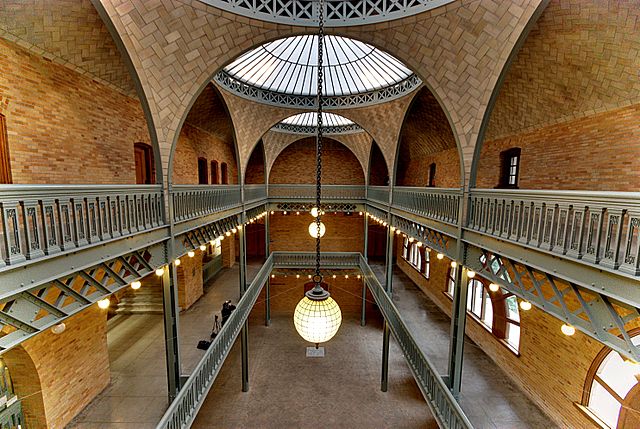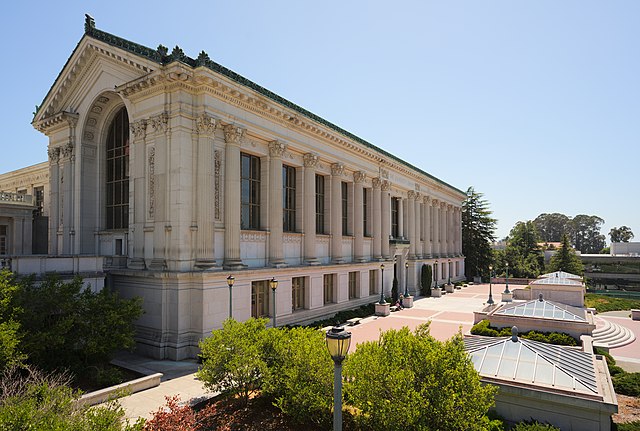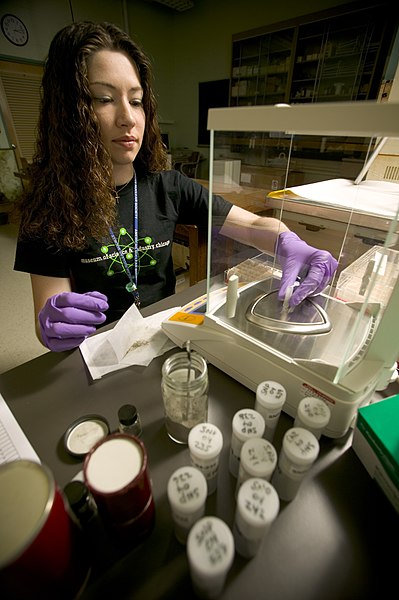University of California, Berkeley
The University of California, Berkeley is a public land-grant research university in Berkeley, California. Founded in 1868 and named after Anglo-Irish philosopher George Berkeley, it is the state's first land-grant university and the founding campus of the University of California system. Berkeley is also a founding member of the Association of American Universities. It has been regarded as one of the top universities in the world.
View from Memorial Glade of Sather Tower (the Campanile), the center of Berkeley
Sather Tower (the Campanile) looking out over San Francisco Bay and Mount Tamalpais
The interior of the Hearst Mining Building, dedicated by Phoebe Hearst in honor of her late husband, George.
Doe Memorial Library
A research university or a research-intensive university is a university that is committed to research as a central part of its mission. They are "the key sites of knowledge production", along with "intergenerational knowledge transfer and the certification of new knowledge" through the awarding of doctoral degrees, and continue to be "the very center of scientific productivity". They can be public or private, and often have well-known brand names.
Wilhelm von Humboldt (1767–1835) is responsible for the Humboldtian model of higher education.
Nuclear research at the University of Wisconsin–Madison, a research university, in Madison, Wisconsin, United States, May 2005
Switzerland spends 0.76% of GDP on university research funding as of 2017, some 3.8x the ratio of the United States (0.20%). ETH Zurich, founded in 1854, is the leading Swiss research university by its number of scholars and publications.
Johns Hopkins University in Baltimore, Maryland, founded in 1876, is considered the first research university in the United States and as of fiscal year 2020 had been the national leader in annual research and development spending for over four decades.








